
The Hebrew University of Jerusalem is an Israeli public research university based in Jerusalem. Co-founded by Albert Einstein and Chaim Weizmann in July 1918, the public university officially opened on 1 April 1925. It is the second-oldest Israeli university, having been founded 30 years before the establishment of the State of Israel but six years after the older Technion university. The HUJI has three campuses in Jerusalem, one in Rehovot, one in Rishon LeZion and one in Eilat. Until 2023, the world's largest library for Jewish studies—the National Library of Israel—was located on its Edmond J. Safra campus in the Givat Ram neighbourhood of Jerusalem.
Bernard Wasserstein is a British and American historian.
Jehuda Reinharz served as President of Brandeis University from 1994–2010. He was the Richard Koret Professor of Modern Jewish History and Director of the Tauber Institute for the Study of European Jewry at Brandeis. He is the president and CEO of the Jack, Joseph and Morton Mandel Foundation. On September 25, 2009, Reinharz announced his retirement as President of Brandeis, but at the request of the Board of Trustees, he stayed on until a replacement could be hired. On January 1, 2011, Reinharz became president and CEO of the Jack, Joseph, and Morton Mandel Foundation.

The Herbert D. Katz Center for Advanced Judaic Studies at the University of Pennsylvania, commonly called the Katz Center, is a postdoctoral research center devoted to the study of Jewish history and civilization.

Menachem Elon (Hebrew: ) was an Israeli jurist and Professor of Law specializing in Mishpat Ivri, an Orthodox rabbi, and a prolific author on traditional Jewish law (Halakha). He was the head of the Jewish Law Institute of the Hebrew University of Jerusalem.

Saul Friedländer is a Czech-born Jewish historian and a professor emeritus of history at UCLA.
Naftali Herz Tur-Sinai was a Bible scholar, author, and linguist instrumental in the revival of the Hebrew language as a modern, spoken language. Tur-Sinai was the first president of the Academy of the Hebrew Language and founder of its Historical Dictionary Project.

Shmuel Noah Eisenstadt was an Israeli sociologist and writer. In 1959 he was appointed to a teaching post in the sociology department of the Hebrew University in Jerusalem. From 1990 until his death in September 2010 he was professor emeritus. He held countless guest professorships, at the University of Chicago, Harvard University, the University of Zurich, the University of Vienna, the University of Bern, Stanford and the University of Heidelberg, among others. Eisenstadt received a number of prizes, including the Balzan Prize and the Max-Planck research prize. He was also the 2006 winner of the Holberg International Memorial Prize. He was a member of many academies, including the American Academy of Arts and Sciences and the Advisory Editors Council of the Social Evolution & History Journal. His daughter Irit Meir was a noted scholar of Israeli sign language.
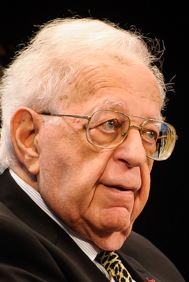
Shlomo Avineri was an Israeli political scientist. He was a professor of Political Science at the Hebrew University of Jerusalem and member of the Israel Academy of Sciences and Humanities. He also served as a recurring visiting professor at the Central European University in Budapest, and as a fellow at Munich-based academic think tank Centrum für angewandte Politikforschung, offering advice to politicians. Avineri died on 30 November 2023 at the age of 90.

Rachel Elior is an Israeli professor of Jewish philosophy at the Hebrew University of Jerusalem in Jerusalem, Israel. Her principal subjects of research has been Hasidism and the history of early Jewish mysticism.

Ute Frevert is a German historian. She is a specialist in modern and contemporary German history, as well as social and gender history. In January 2008, she was appointed managing director of the Max Planck Institute for Human Development and director of the Institute's Center for History of Emotions in Berlin.
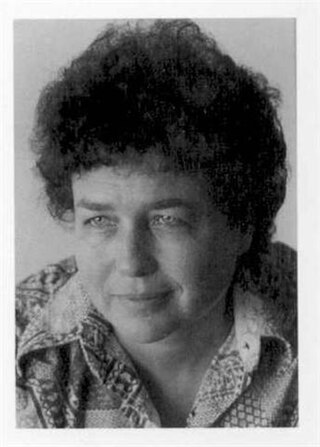
Ruth Kark is an Israeli historical geographer and professor of geography at the Hebrew University of Jerusalem. Professor Kark is a well-known researcher and expert in the field of the historical geography of Palestine and Israel.
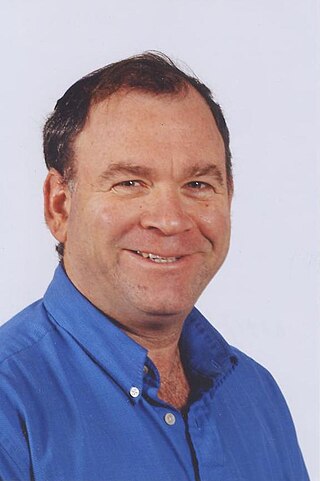
Alexander Lubotzky is an Israeli mathematician and former politician who is currently a professor at the Weizmann Institute of Science and an adjunct professor at Yale University. He served as a member of the Knesset for The Third Way party between 1996 and 1999. In 2018 he won the Israel Prize for his accomplishments in mathematics and computer science.
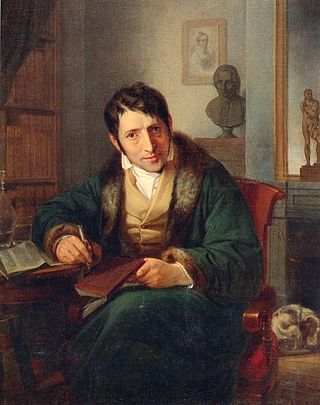
The Ludwig Börne Prize is a literary award that is awarded annually by the Frankfurt-based Ludwig-Börne-Stiftung. It is one of the most important of its kind in German-speaking countries.
Barbara Kirshenblatt-Gimblett is a scholar of Performance and Jewish Studies and a museum professional. Professor Emerita of Performance Studies at New York University, she is best known for her interdisciplinary contributions to Jewish studies and to the theory and history of museums, tourism, and heritage. She is currently the Ronald S. Lauder Chief Curator of the Core Exhibition and Advisor to the Director at POLIN Museum of the History of Polish Jews in Warsaw.

Amiram Goldblum is an Israeli chemist and activist in the Israeli–Palestinian conflict. He is Professor Emeritus of Computational Medicinal Chemistry at the Hebrew University of Jerusalem School of Pharmacy. He holds a PhD in organic chemistry from the Hebrew University. He is the head of the Molecular Modelling and Drug Design unit at the university's Institute for Drug Research.
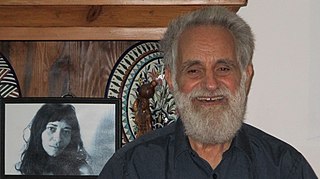
Benjamin Ze'ev Kedar is an Israeli historian, professor emeritus of History at the Hebrew University of Jerusalem. He was president of the international Society for the Study of the Crusades and the Latin East (1995–2002), chairman of the board of the Israel Antiquities Authority (2000–12) and vice-president of the Israel Academy of Sciences and Humanities (2010–15). He is 2019 The EMET Prize for Art, Science and Culture laureate in history , the 2020 Israel Prize laureate in history research. and in 2024 he won the Prix Gustave Schlumberger de l’Académie des Inscriptions et Belles-Lettres.
Michael Brenner is a German historian who researches and publishes on the history of Jews and Israel. Brenner has authored eight books on Jewish history, which were translated into twelve languages and is the editor and co-editor of eighteen books. He holds teaching positions at both the Ludwig Maximilian University of Munich and the American University.
Joachim Küpper is a professor of romance studies and comparative literature at the Freie Universität Berlin. Küpper has published on authors from various periods, including Homer, Dante, Petrarch, Shakespeare, Francisco de Quevedo, Pedro Calderón de la Barca, Lope de Vega, Alessandro Manzoni, Balzac, Flaubert, Theodor Fontane, and Alain Robbe-Grillet. In addition, he works on problems of literary theory and intellectual history. He is the author of eight monographs and approximately 100 articles, as well as the editor of numerous volumes and scholarly journals.
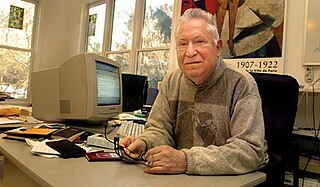
Benjamin Harshav, born Hrushovski ; June 26, 1928 – April 23, 2015 was a literary theorist specialising in comparative literature, a Yiddish and Hebrew poet, and an Israeli translator and editor. He served as professor of literature at the University of Tel Aviv and as a professor of comparative literature, Hebrew language and literature, and Slavic languages and literature at Yale University. He was the founding editor of the Duke University Press publication Poetics Today. He received the EMET Prize for Art, Science and Culture in 2005 and was a member of the American Academy of Arts and Sciences.













